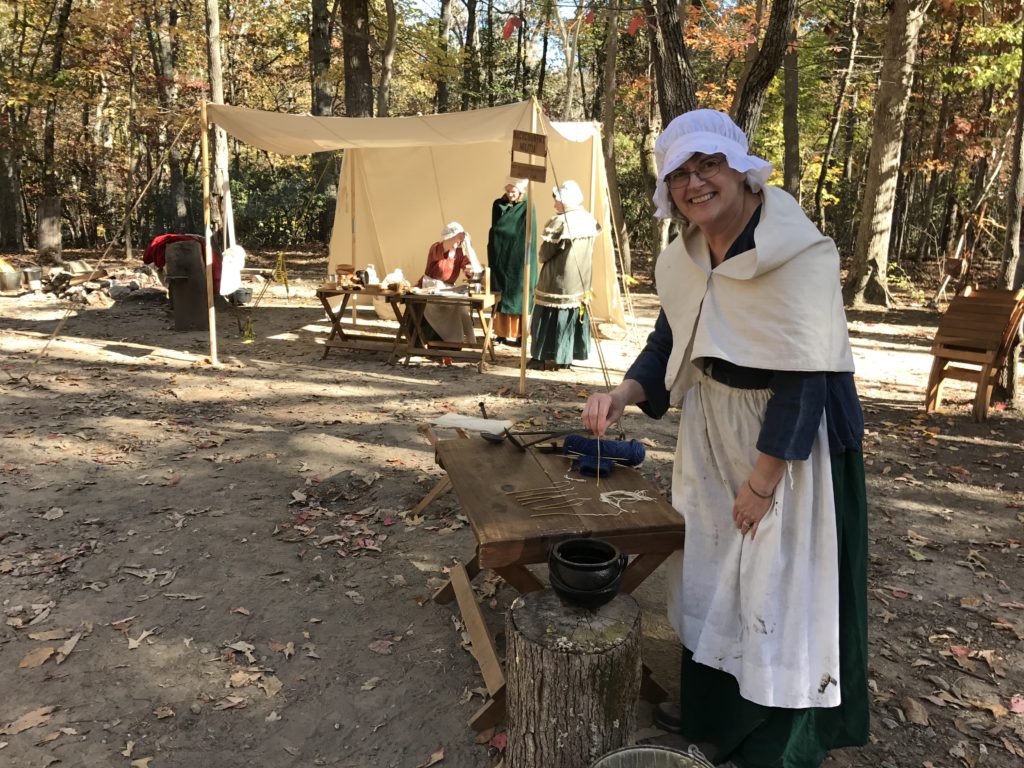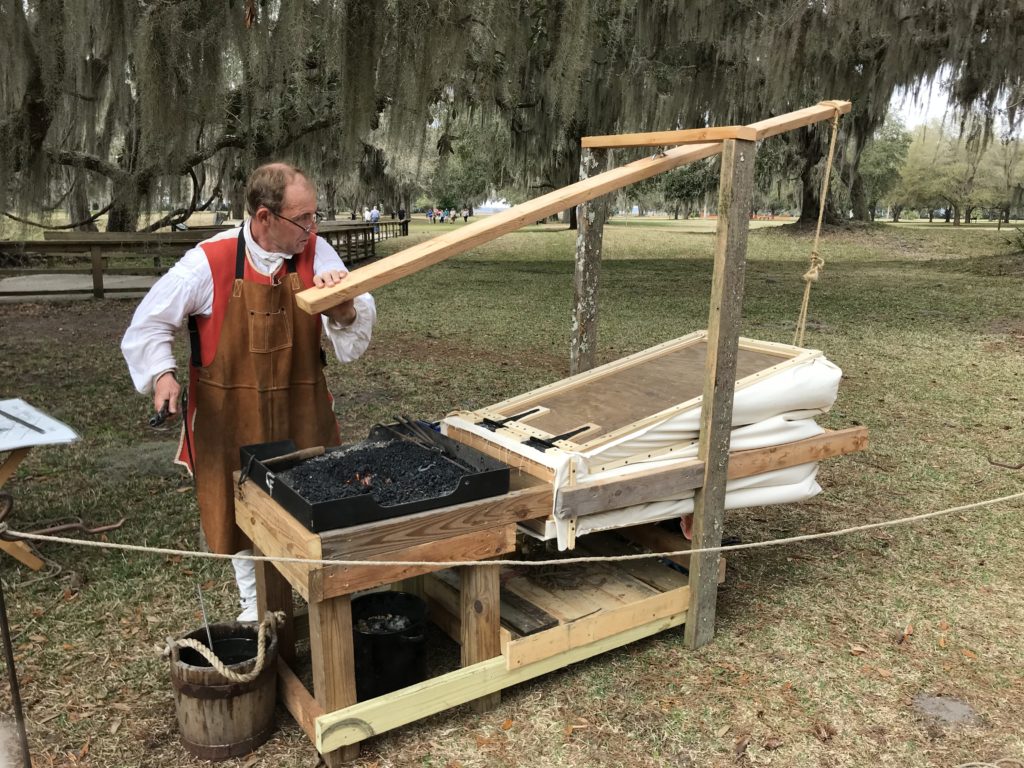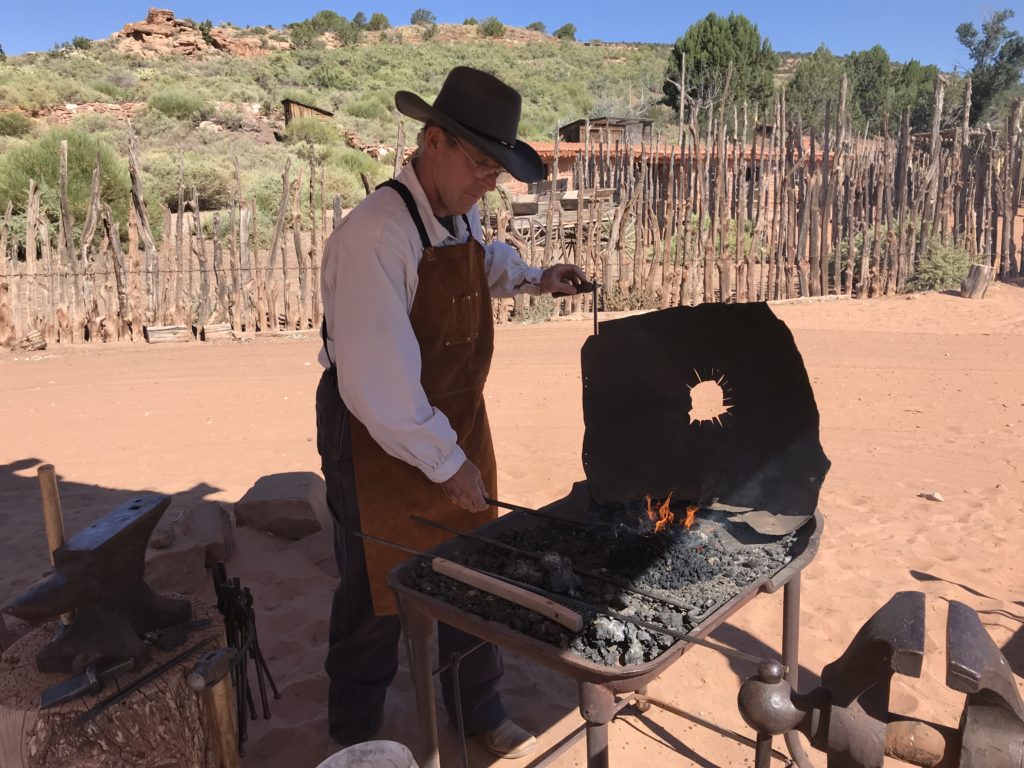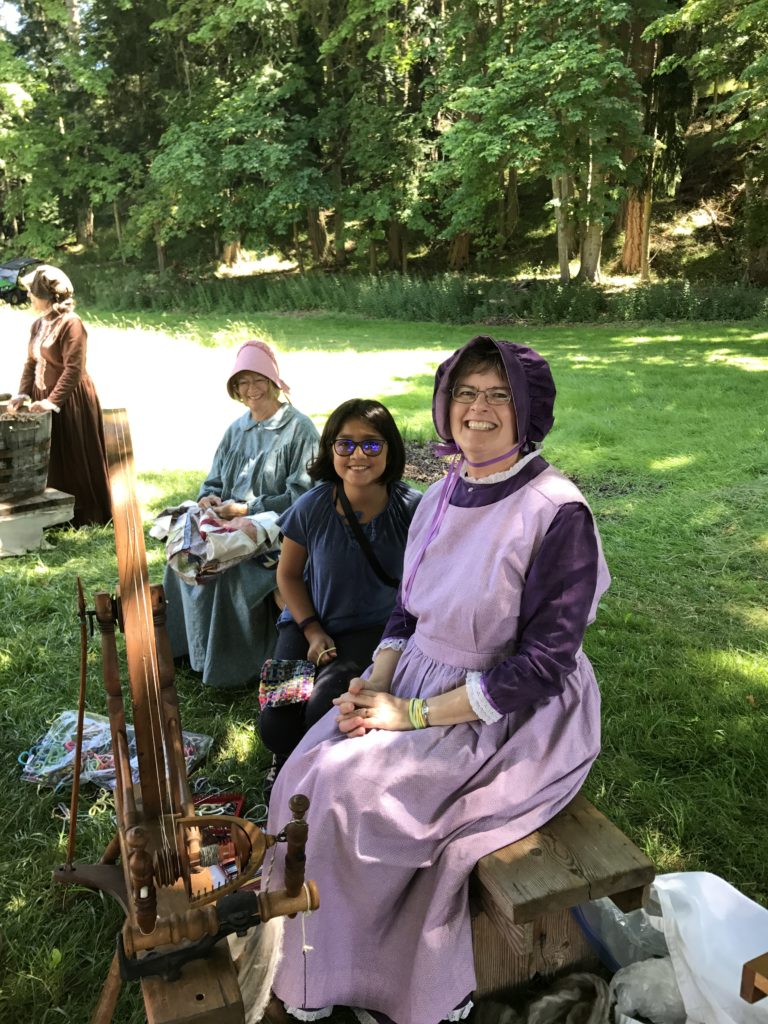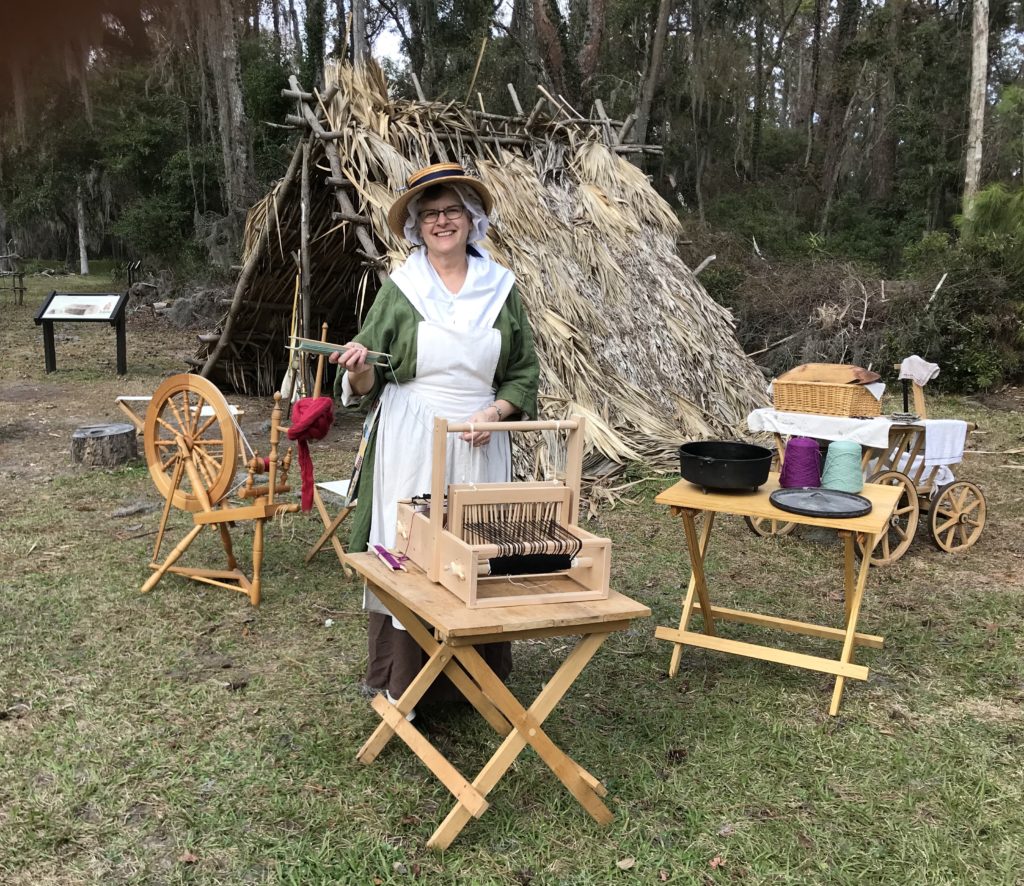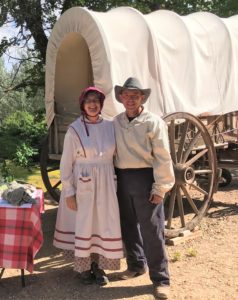 When I am dressed in my historical clothing, I am always wearing an apron. No matter what I am doing. Of course, I have always liked aprons. I made an apron as a gift for my Grandma Irvin when I was a teenager. When she died, she still had that apron, packed in a special box and never used.
When I am dressed in my historical clothing, I am always wearing an apron. No matter what I am doing. Of course, I have always liked aprons. I made an apron as a gift for my Grandma Irvin when I was a teenager. When she died, she still had that apron, packed in a special box and never used.
Aprons are a special garment and useful garment. They aren’t worn much anymore, but I find them a wonderful help in interpreting history. Here at Fort Frederica I cook over a campfire on Saturdays. My apron keeps all the soot and creosote from the fire off my colonial clothing. The other day my apron caught on fire. I quickly put it out and patched it later, but I was glad for the extra layer that protected me and my clothing. I use the apron as a hot pad for picking up kettles.
But aprons are good for more than cooking. When I am spinning, I use the apron to wipe my hands and keep them dry. If I oil the wheel, the apron can be good for catching any drips. The last few days doing living history have been very hot, and I use my apron to wipe the sweat from my face and keep it out of my eyes. The other day I used the apron to dry a dish.
Tom wears a protective leather apron when he is blacksmithing. This keeps his clothing and his skin from getting burned.
Aprons are great for keeping clothing clean. I used to wear an apron all the time when I baked cookies. I usually had as much flour on me as in my mixing bowl. A few days ago I was mixing up a tomato based soup to cook at Fort Frederica and a can of diced tomatoes exploded on me. There was tomato sauce all over my apron and all over the kitchen. But none on my historical clothing under the apron. Saved me a complete costume change!
I found out that the color of a person’s apron used to indicate their profession. Cobblers wore black, barbers wore checkered, and weavers wore blue aprons. The word apron comes from a french word meaning small tablecloth. Today, people who work in messy or dangerous professions often wear aprons. Butchers, chemists, and cooks usually wear aprons.
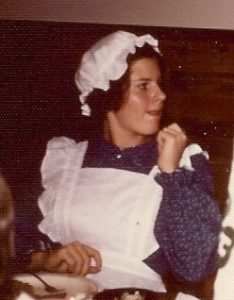
Although I don’t have an apron that I wear around the RV, I am glad for the aprons I wear as part of my historical clothing. They are useful and decorative. The aprons I wear help me step back into time and the mindset of the women who wore them. I have many fond memories of aprons and wearing them through the years.
How about you? How has an apron helped you?

